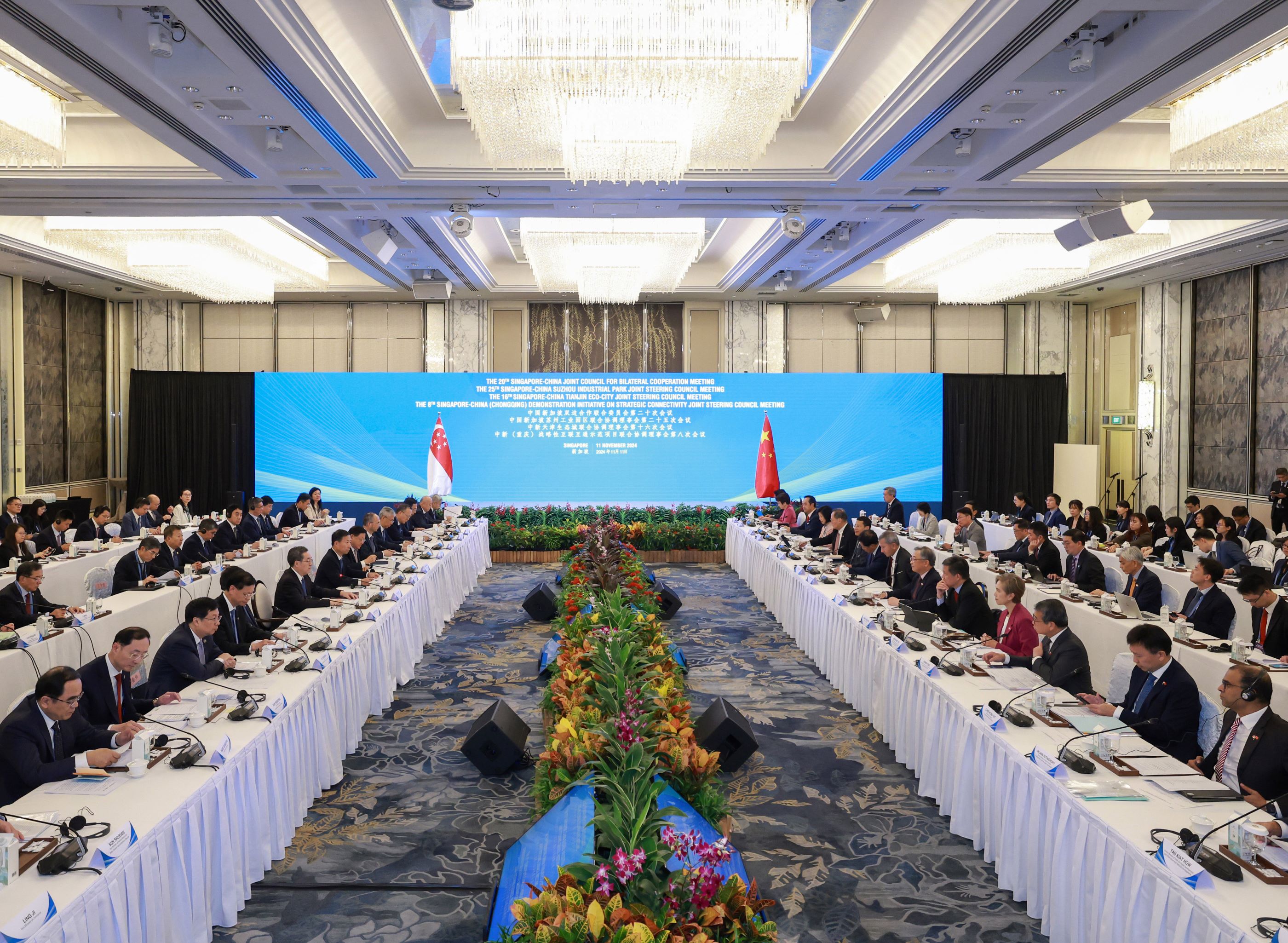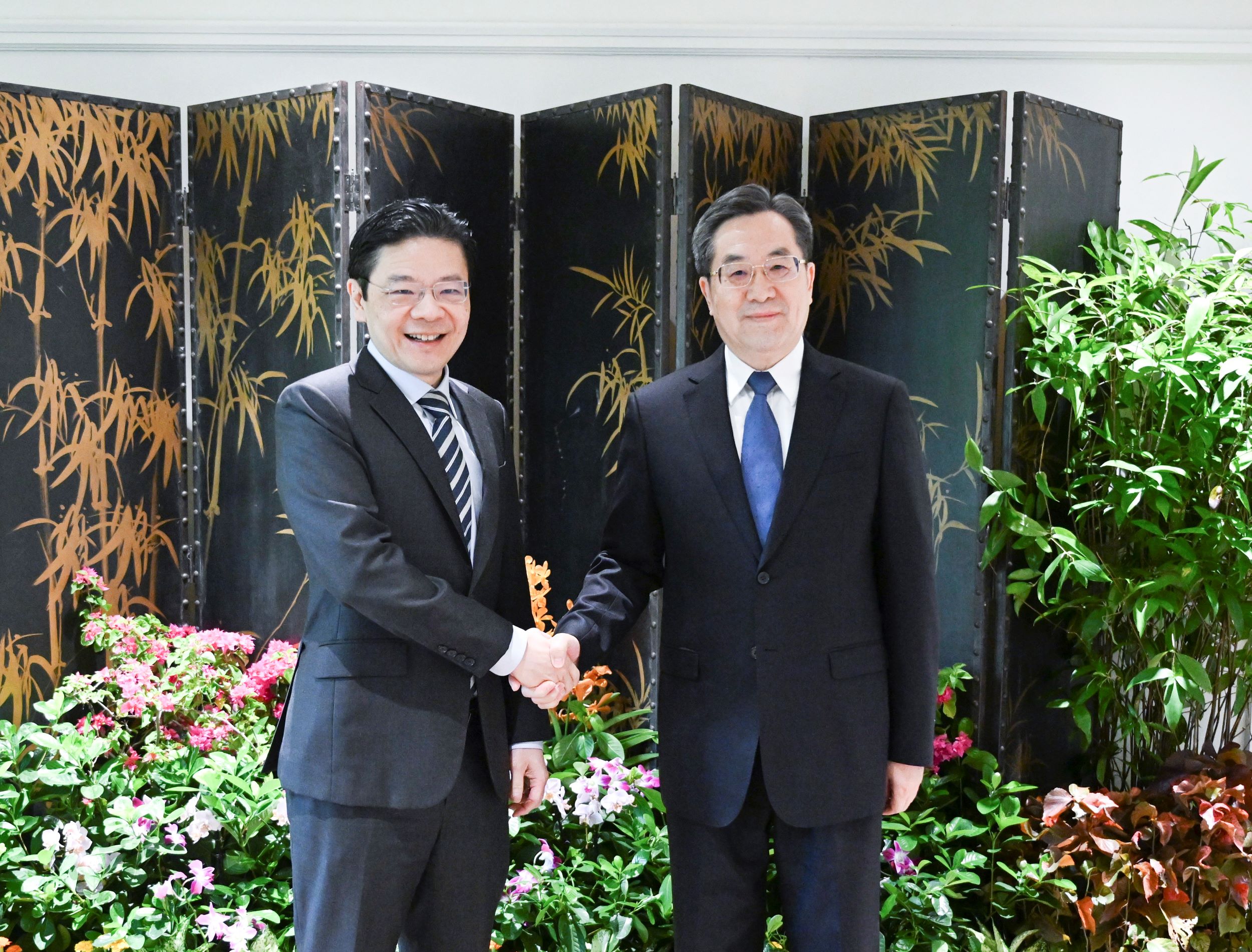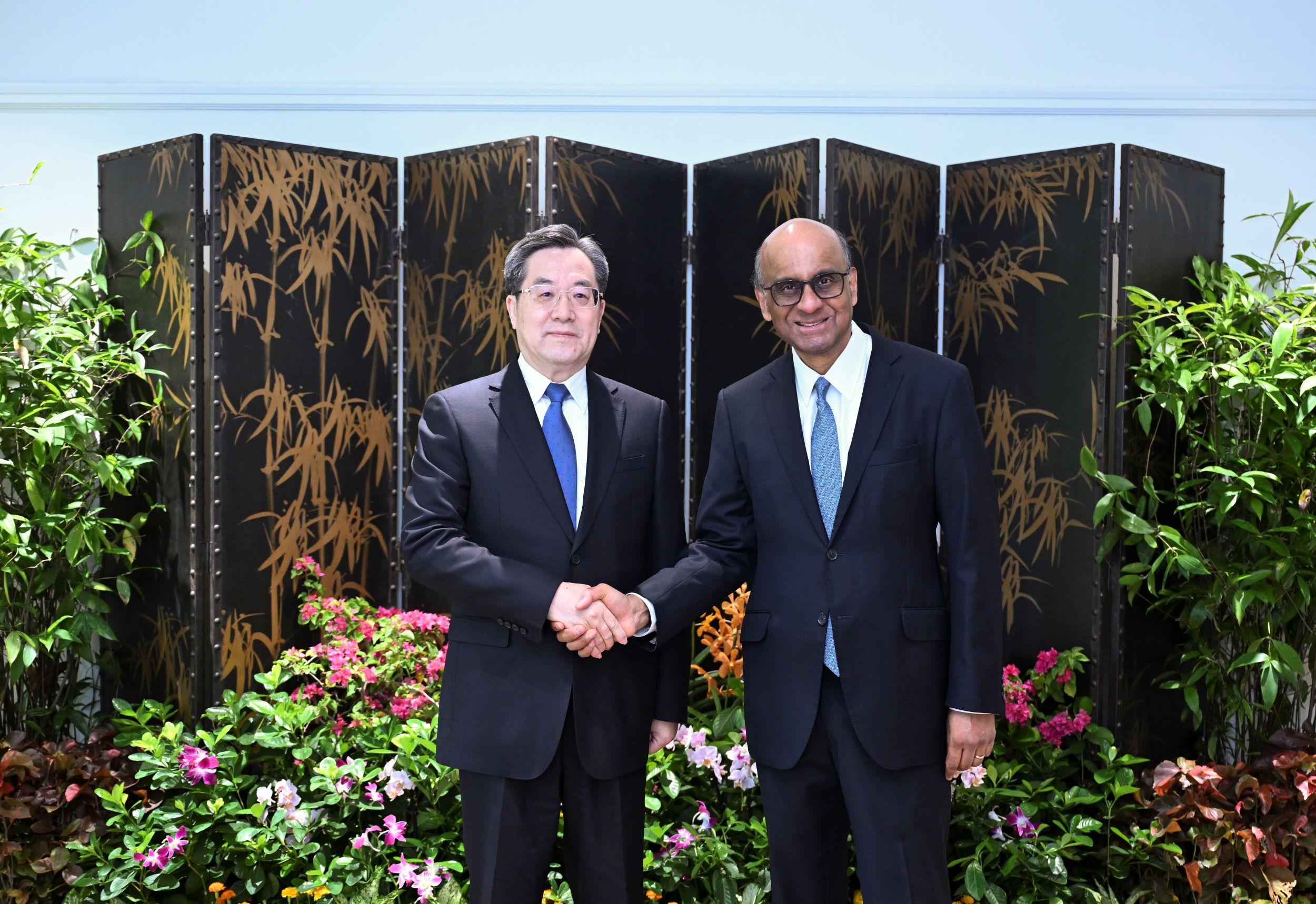
SINGAPORE - Chinese Vice-Premier Ding Xuexiang on Monday met with Singapore's Deputy Prime Minister Gan Kim Yong, and they agreed to strengthen the planning and design of bilateral cooperation in an all-round, high-quality and forward-looking manner.
Ding, also a member of the Standing Committee of the Political Bureau of the Communist Party of China Central Committee, said when meeting with Gan that bilateral cooperation has produced new fruitful results in the past year and the two sides should make good use of the various platforms of bilateral cooperation mechanisms and continue to work together to push forward bilateral cooperation.
READ MORE: Chinese premier: China ready to join Singapore for modernization
Gan said that the bilateral cooperation mechanism has continuously injected new impetus into the prosperity and development of the two countries. Singapore attaches great importance to the building of bilateral cooperation mechanisms and is willing to keep close high-level exchanges with China, strengthen mutual learning on governance, enhance people-to-people exchanges, expand cooperation in emerging areas and push for greater development of bilateral relations.
The two officials co-chaired four meetings of bilateral cooperation mechanisms, including the 20th meeting of the China-Singapore Joint Council for Bilateral Cooperation, the 25th meeting of the China-Singapore Suzhou Industrial Park Joint Steering Council (JSC), the 16th meeting of the China-Singapore Tianjin Eco-City JSC, and the eighth meeting of the China-Singapore (Chongqing) Demonstration Initiative on Strategic Connectivity JSC.
ALSO READ: Visa-free policy boosts tourism, exchange with Singapore
The two sides comprehensively reviewed the progress of China-Singapore practical cooperation and fully recognized the achievements of the China-Singapore Suzhou Industrial Park, the China-Singapore Tianjin Eco-City, the China-Singapore (Chongqing) Demonstration Initiative on Strategic Connectivity, and the Guangzhou Knowledge City.
They had in-depth exchanges on the cooperation on the Belt and Road Initiative (BRI), economy and trade, sustainable development, innovation, finance, public health, people-to-people exchanges, and bilateral national-level projects, and jointly explored new ideas and measures for cooperation.
The two sides agreed to continue to deepen high-quality Belt and Road cooperation, strengthen and implement major cooperation projects, strengthen the construction of new land-sea corridors, continue to expand cooperation in new areas with a focus on digitalization and greenization, and push for new achievements in people-to-people exchanges and cultural cooperation, so as to better benefit the two countries and their people.
ALSO READ: Beijing, Singapore plan more exchanges
They also witnessed 25 achievements of China-Singapore cooperation, including the signing of a Belt and Road cooperation plan, agreeing on the China-Singapore Free Trade Agreement (CSFTA) Further Upgrade Protocol (FUP) to enter into force on Dec 31 this year, and the renewal of the framework agreement on the exchange and training program for middle and high-ranking officials.

Also on Monday, Ding met with Singaporean Prime Minister Lawrence Wong.
Noting that next year will mark the 35th anniversary of the establishment of diplomatic relations between the two countries, Ding said that China is ready to work with Singapore to further implement the important consensus reached by the leaders of the two countries, strengthen high-level exchanges, consolidate political mutual trust and firmly support each other on issues concerning their respective core interests and major concerns.
He called on the two sides to synergize their development strategies more closely, strengthen overall planning, and constantly explore new areas of mutual interest and cooperation growth.
READ MORE: China-Singapore joint naval exercise kicks off
For his part, Wong said that Singapore attaches great importance to developing relations with China, and will continue to adhere to the one-China policy.
He said that Singapore is willing to deepen exchanges and cooperation with China in such areas as economy, trade, science and technology and people-to-people exchanges to achieve mutual benefit and win-win results, so as to bring more benefits to the two countries and two peoples.
He said that Singapore is willing to play a constructive role in the development of ASEAN-China relations and work with China to safeguard free trade and promote regional stability and openness.

The Chinese vice-premier also met with Singaporean President Tharman Shanmugaratnam during his trip.
Ding said China is willing to strengthen coordination with Singapore within the framework of the United Nations, the ASEAN and other multilateral mechanisms as the international situation is intertwined with changes and chaos.
READ MORE: China says scope wide for ASEAN ties
China is also willing to intensify cooperation with Singapore in areas such as tackling climate change, and firmly supports the building of the ASEAN community and ASEAN centrality, Ding said.
Ding stressed that China is willing to work with regional countries, including Singapore, to prevent external forces from interfering with the mainstream of regional development cooperation and jointly safeguard the hard-won peace and tranquility in the region.
Tharman Shanmugaratnam said Singapore is willing to strengthen communication and coordination with China in international and regional affairs to build an open world economy and create a better future for the people of the two countries and the region.



